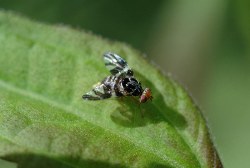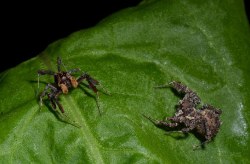On the OECD report on the NZ Environment
22 March 2017
For immediate release
Miscanthus. NZ’s answer to the OECD report on the NZ Environment
Te Awamutu based company, Miscanthus New Zealand Limited (MNZ), believes that it has the answer to many of the cautions and warnings to New Zealand that are contained in the latest OECD report on the NZ environment but officials do not seem to be receptive to this. MNZ has been working for over 6 years introducing to New Zealand, the sterile perennial 4 m tall woody grass called Miscanthus, which brings with it a range of environmental and commercial benefits. “But we keep running into governmental road blocks while at the same time, most NZ landowners are very reluctant to make any changes to their business model.” says Peter Brown, managing director of MNZ.
Brown added “Miscanthus presents a wide range of benefits to landowners, commercial boiler operators such as meat and milk processing companies, companies and councils with waste-water disposal issues, and also all levels of government concerned about nitrogen leaching and greenhouse gas emissions. When Miscanthus is eventually adopted widely, it will help to alleviate many of the environmental issues highlighted in the OECD report. At the moment, progress on this is constrained by landowner conservatism and what seems to be narrow-minded and short sighted governmental bureaucracy.”
When Miscanthus eventually starts to be taken up on a significant scale, it has the capacity to positively transform the economics of many farms. But it will also put NZ on a positive environmental path that will answer the OECD criticisms. It will provide landowners with a positive annual alternative revenue stream that is independent of normal farm product price cycles; boost milk production by providing shelter on irrigated dairy farms; improve animal health from such shelter; reduce to almost zero the level of nitrogen leaching into water tables and streams from nitrogen rich effluent disposal sites; and markedly improve the carbon balance of land where it is grown and industries where it is used. Dr Steve Wratten of Lincoln University has identified multiple ecosystem services provided by Miscanthus and has published papers on this subject.
MNZ has also been pushing to get renewable diesel production started in NZ at a regional scale using both purpose-grown Miscanthus and forest processing industry residues. This will generate a significant reduction in foreign exchange needed for diesel imports and a similar significant reduction in NZ’s net greenhouse gas emissions. One of the co-products of the renewable diesel production is biochar which means that this carbon is permanently sequestered. But within the ranks of government officials and established industry, there seems to be little interest in going down this path primarily because of it is outside the experience of the decision-makers.
According to Brown, the problem is that government assistance and encouragement seems to be targeted only at increasing exports, with none focused on import substitution. “Government officials, politicians, major fuel users and other land use decision makers, seem to be so focused on what they are already familiar with that they are unable to consider an alternative,” he says “even though this alternative not only has a sound commercial base but also provides multiple benefits for the environment and for NZ as a whole.”
Ends


 Business Canterbury: Urges Council To Cut Costs, Not Ambition For City
Business Canterbury: Urges Council To Cut Costs, Not Ambition For City Wellington Airport: On Track For Net Zero Emissions By 2028
Wellington Airport: On Track For Net Zero Emissions By 2028 Landcare Research: ANZAC Gall Fly Release Promises Natural Solution To Weed Threat
Landcare Research: ANZAC Gall Fly Release Promises Natural Solution To Weed Threat NZ Anti-Vivisection Society: Auckland Rat Lovers Unite!
NZ Anti-Vivisection Society: Auckland Rat Lovers Unite! University of Canterbury: $1.35 Million Grant To Study Lion-like Jumping Spiders
University of Canterbury: $1.35 Million Grant To Study Lion-like Jumping Spiders Federated Farmers: Government Ends War On Farming
Federated Farmers: Government Ends War On Farming



